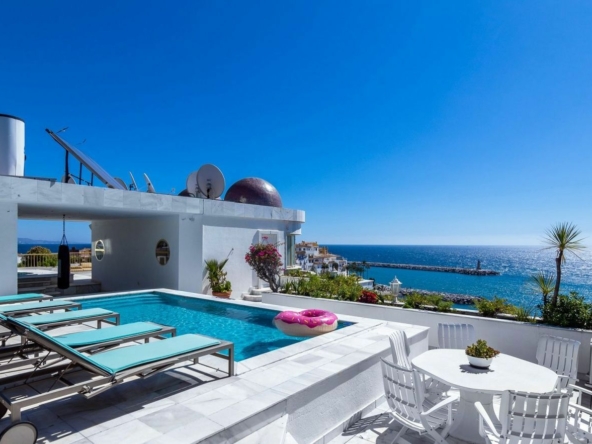Travelling to the EU, Switzerland, Norway, Iceland, or Liechtenstein for UK Citizens
Travelling to Europe has undergone changes for UK citizens since Brexit, but the requirements for short trips, such as holidays or business travel, have remained mostly the same. The main difference is that now UK citizens can visit these European countries without a visa for a maximum of three months. Previously, there was no specific time limit, allowing for indefinite stays within the EU.
Duration of Stay for UK Citizens in the EU
After Brexit, UK citizens can stay in the EU, Iceland, Norway, and Switzerland without a visa for up to 90 days within a 180-day period. If your trip exceeds the 90-day limit, you will need to apply for the appropriate visa and residence permit.
Understanding the 90/180 Days Rule
The 90/180 days rule can be confusing, especially if you weren’t previously subject to such regulations. However, it can be easily understood by looking back at the past 180 days and calculating the total number of days you spent in any EU country (including Iceland, Norway, and Switzerland) during that period. Subtracting this figure from 90 will determine the remaining duration for your trip.
Alternatively, you can use an online calculator specifically designed to determine the remaining time you are allowed to stay in Europe.
Important Note about Ireland
It’s important to note that the regulations mentioned above do not apply to Ireland. UK citizens can still visit, work, or study in Ireland under the same terms as before Brexit.
If you are considering obtaining residence in Spain as a UK citizen, there are specific requirements and procedures set by the Spanish government that you need to follow. Here are some general steps to consider:
Residency Registration: If you plan to reside in Spain for more than three months, you must register as a resident. This involves obtaining a Foreigner’s Identity Card (TIE) or a Foreigner’s Identity Number (NIE). You will need to provide documents such as proof of income, health insurance, and a valid passport.
Visa and Residence Permit: Depending on your circumstances, you may need to apply for a visa and residence permit before traveling to Spain. The type of visa required will depend on factors like employment, study, or family reunification. It is advisable to consult the Spanish embassy or consulate in your country for detailed information.
Meeting Requirements: Each residency category has specific requirements, such as proof of financial means, accommodation, health insurance, and background checks. Ensure you gather all the necessary documents and meet the criteria for the specific residency program you are applying for.
Application Process: Once you have collected the required documents, you can submit your application at the appropriate immigration office or Spanish consulate. The application process may involve an interview, payment of fees, and submission of biometric data.
Waiting Period: After submitting your application, there will be a waiting period for processing. The duration of this period can vary, so it is advisable to check with the authorities for estimated processing times.
Residence Card: If your application is approved, you will receive a residence card that confirms your legal status as a resident in Spain. This card will typically have an expiration date, and you may need to renew it periodically.
It is important to note that these steps provide a general overview, and the specific requirements and procedures can vary based on individual circumstances. It is recommended to consult official sources, such as the Spanish embassy or consulate, or seek professional legal advice to ensure you have accurate and up-to-date information regarding the residency process in Spain.
Entry Conditions for Traveling to Spain
As of July 6, 2022, third-country nationals planning to travel to Spain for a stay of up to 90 days (within any 180-day period) for purposes such as tourism, business, family visits, medical treatment, study, non-working practice, voluntary activities lasting less than 3 months, or other non-profit activities must adhere to the entry conditions outlined in the Schengen Borders Code.
Entry Requirements:
Entry through authorized border crossing points.
Valid and current travel document for proof of identity.
Visa requirement depending on nationality.
Demonstrate the purpose of stay and availability of financial means.
Not subject to entry bans.
COVID-19:
Since June 2, 2022, Spain has lifted all COVID-19-related restrictions on free movement between EU countries. There are no health-related restrictions imposed on travelers coming from Ireland or other EU or Schengen associated countries.
Documents to Present at the Border:
Valid passport or travel document: The document should be valid for at least 3 months beyond the planned departure date from the Schengen territory and must have been issued within the past 10 years.
Visa: Some nationalities require a valid and unexpired stay visa. A stay visa is not necessary if the individual holds a valid residence permit or long-stay visa issued by a Schengen State. The list of nationalities requiring a stay visa can be found in Annex I of Regulation (EU) 2018/1806.
Documents justifying the purpose and conditions of the stay: Authorities may request supporting documents to justify the purpose of stay. Examples include:
Business trips: Invitation from a company, proof of business relations, or trade fair/congress access cards.
Tourist or private trips: Confirmation of organized trip booking, accommodation proof, or invitation letter from a private individual (accommodation proof does not substitute other entry requirements).
Study, training, non-work placements, or volunteering trips: Enrollment/admission proof, traineeship agreement, or volunteer program admission.
Other reasons: Invitations, reservations, participation certificates, entry cards, or receipts.
Proof of Financial Means:
Authorities may request proof of sufficient financial means to cover the intended stay or the ability to legally acquire such means. In 2022, the minimum amount required is 100 euros per person per day, with a minimum of 900 euros or its equivalent in foreign currency regardless of the length of stay. Financial means can be demonstrated through cash, traveler’s cheques, credit cards with bank statements, bank statements, or other means verifying available credit.
Authorization of Entry:
Entry into Spain may be authorized for third-country nationals who possess the required documentation, including visas where applicable, sufficient financial means, and do not pose a threat to public order, internal or external security, or public health.
Refusal of Entry:
Authorities may refuse entry to third-country nationals who do not meet the entry conditions or are subject to entry bans. Entry may also be refused if the 90-day authorized stay in the Schengen area has been exhausted within 180 days. The refusal of entry is provided in writing, along with information on possible appeals according to Spanish regulations. However, submitting an appeal does not suspend the effects of the entry refusal.
Citizens of the European Union, Iceland, Liechtenstein, Norway, and Switzerland and Their Family Members:
Citizens of EU Member States and associated countries can enter Spain with their national identity card or valid passport. Minors traveling with an ID and without a parent require parental authorization.
Family members who are not EU or associated country nationals need a valid passport and may require an entry visa, unless they possess a valid EU family member’s residence card.
Further Information:
For more detailed information on the entry conditions for Spain, it is advisable to visit the website of the Ministry of the Interior.
Basic Regulations:
The entry conditions for Spain are governed by the following regulations:
Regulation (EU) 2016/399 of the European Parliament and of the Council of 9 March 2016, establishing a Union Code on the rules governing the movement of persons across borders (Schengen Borders Code).
Regulation (EU) 2018/1806 of the European Parliament and of the Council of 14 November 2018, listing the third countries whose nationals must possess visas when crossing external borders and those whose nationals are exempt from this requirement.
Royal Decree 240/2007, dated 16 February 2007, on the entry, free movement, and residence in Spain of citizens of EU Member States and other States party to the Agreement on the European Economic Area.
Please note that the provided information is subject to change, and it is recommended to regularly check for updates and consult the official sources for the most current and accurate details regarding entry into Spain.
Stefan Katafai offers a personalized approach to help you find the perfect property in Marbella that aligns with your budget and preferences. With his extensive network and market knowledge, Stefan will conduct a tailored search to identify suitable options for you, whether you’re interested in a luxurious villa, a beachfront apartment, or a charming townhouse.
Navigating the complex real estate market in Marbella can be daunting, but with Stefan’s guidance, you can proceed with confidence. He will provide comprehensive information about potential properties, including their location, amenities, market value, and investment potential. Stefan’s expertise in negotiations and deal structuring ensures that you make well-informed decisions and secure the best possible deal.
In addition to property search and acquisition, Stefan can assist you with other aspects of the purchase process. Whether it’s property reform, legal matters, or connecting with trusted professionals like lawyers, architects, and contractors, he has a wide network of contacts to streamline the experience for you.
If you’re considering a real estate investment in Marbella, reach out to Stefan Katafai today to discuss your requirements and benefit from his expertise. With his personalized approach and commitment to client satisfaction, Stefan will guide you towards a profitable and successful investment in the beautiful region of Marbella.
Contact information:
Stefan Katafai
Phone: +34 637 973742
Email: [email protected]
Website: Agent4stars.com




